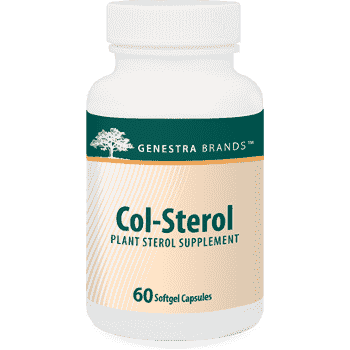Having high cholesterol doesn’t usually come with any symptoms, yet it is one of the leading causes of heart attacks and strokes. People with high cholesterol have at least twice the risk of a heart attack than those who don’t.
Most people assume their cholesterol levels are fine but, if they’re wrong, they may have dangerously clogged arteries that can reduce blood flow and lead to serious problems. Just as it can be very hard to guess the weather, it is equally hard to guess what our cholesterol levels are and, similar to the unexpected onset of stormy weather, high cholesterol can sneak up and cause major issues if we’re not prepared.
Some people may suspect their cholesterol is high because their parent’s cholesterol levels are high. However, most people learn about their cholesterol levels from a simple blood test usually associated with a regular check-up with their doctor. If the levels are high, doctors usually prescribe dietary changes and statin drugs to reduce their cholesterol.
We now know about naturally-occurring, plant-derived molecules (called sterols) which have been found to be a powerful tool in lowering cholesterol. Whether you are looking to reduce your cholesterol that is currently too high or prevent cholesterol from becoming a potential problem later, plant sterols may provide substantial benefit as an alternative to statin drugs or in addition to cholesterol-lowering dietary changes.
Cholesterol: The good, the bad, the unhealthy
Although it may surprise some, not all kinds of cholesterol are bad. In fact, cholesterol is a necessary substance that the body creates to assist in the creation of vitamin D, cell membranes, hormones, and bile acids that allow the body to digest fat. The body can make all the cholesterol it needs.
However, eating high cholesterol foods can overload the body with excess cholesterol. A standard cholesterol test, known as a “lipid panel,” measures total cholesterol in your body and will tell you the specific kind of cholesterol in the blood: low-density lipoproteins (LDL), high-density lipoproteins (HDL) and triglycerides.
HDL cholesterol is often referred to as good cholesterol because it carries LDL (bad) cholesterol from other parts of your body back to your liver so that it can be removed from the body. LDL cholesterol causes a buildup of plaque in the arteries, called atherosclerosis, and leads to the damage of the arteries; including those to the heart which is the major cause of a heart attack. Triglycerides are similar to cholesterol in that they are a type of fat in the blood that is useful and essential at low levels but dangerous at high levels.
Whereas cholesterol builds cells and hormones, triglycerides are burned to create energy. Although triglycerides are not discussed as often as cholesterol when it comes to heart health risk factors, it is important to be aware of triglyceride levels. The Mayo Clinic considers a normal triglyceride level to be anything below 150 milligrams per deciliter (mg/dL) of blood.
When it comes to cholesterol, many researchers believe that maintaining healthy ratios of “good” cholesterol (HDL) to “bad” cholesterol (LDL) is even more important than simply looking at your overall level. It is best to have your doctor check your cholesterol every few years to determine if your ratio of total cholesterol to HDL is a healthy one. If that ratio is less than 3.5-to-1, it’s usually time to start addressing the problem before it harms cardiovascular health.
Another key measurement is if your total cholesterol (sum of HDL, LDL and triglycerides divided by 5) is over 200; this means you are at risk. The key is to find a way to lower your LDL (to below the optimaum level of 100 mg/dL) without lowering HDL. Plant sterols give us a safe, natural, and effective way to do exactly that.
How plant sterols can help
Many health organizations, from the Mayo Clinic to the Cleveland Clinic, have been spreading the word about how plant sterols can reduce dietary cholesterol. Plant sterols are naturally-occurring substances that are present in small amounts in many kinds of grains, fruits, legumes, vegetables, nuts, and seeds.
Plant sterols are believed to reduce cholesterol because the body appears to think the sterols are cholesterol and absorbs them instead of the actual, dietary cholesterol. The result is that dietary cholesterol absorption is reduced and LDL cholesterol levels are lowered.
A study published in Comparative Biochemistry and Physiology Part A: Molecular & Integrative Physiology concludes that our reduced dietary intake of fruits, and especially vegetables, plays a big role in our use of cholesterol-lowering medications like statins. The researchers found that experimental introduction of plant sterols (as well as fiber and vegetable protein) lowered LDL cholesterol in healthy volunteers by over 30%.
What the science says
Research from Food & Nutrition Research came to similar conclusions by determining that plant sterol-containing products significantly decreased LDL levels among study participants who used them when compared to those who instead received a placebo. What is particularly interesting about this study is that the researchers found the greatest benefit was seen by those who had the highest LDL readings going into the experiment. This shows that even those with particularly high LDL cholesterol levels can see remarkable benefits from plant sterol supplementation. The study also found that consuming plant sterols three times a day, before meals, made them more effective than just taking them once a day.
A study from Journal of Lipid Research is yet another to find a connection between plant sterols and lower cholesterol, but this research also explains a critical part of how plant sterols do it. The researchers discovered that consuming more phytonutrients leads to a leaner body. This suggests that we may discover more in the future about the importance of being in shape when it comes to keeping cholesterol in check.
Research published in The American Journal of Clinical Nutrition looked at the effects different doses of plant sterols (though diet and supplements) have on cholesterol levels. Subjects were given either 59, 459, or 2059 mg per day. Those receiving just 59 per day showed minor effects but the 2059-milligrams-a-day group saw by far the sharpest decrease in LDL cholesterol, suggesting this is an effective high-end dose for cholesterol reduction.
Plant sterols are able to further protect the heart by lowering triglyceride levels as well. A study from the European Journal of Nutrition found that supplementing with plant sterols has the ability to lower triglycerides and that the biggest reductions were found in those who had the highest levels going into the study. The researchers note that the experiment yielded similar results to five other experiments that they studied which also showed plant sterols reduced triglyceride levels.
How to manage cholesterol naturally
There are essentially three ways to reduce LDL: 1) reduce high cholesterol foods in the diet, 2) block the absorption of dietary cholesterol food using plant sterols, increased fitness and vegetables in the diet, or 3) block the production of cholesterol by the body through the use of statin drugs.
Although many people are prescribed statins for cholesterol reduction, they can often be accompanied by unbearable or dangerous side effects. A brand new study from The Journal of the American Medical Association found that many people experience severe muscle pain, weakness and cramping when taking statins. The researchers call this condition “statin intolerance.”
A review from the American Journal of Cardiovascular Drugs noted that although muscle-related side effects are the most common problems with statin use, there are also a significant number of cases where cognitive, gastrointestinal, glucose control and sleep problems have been reported.
Another way to reduce cholesterol is to reduce the intake of foods high in cholesterol. Avoid products made with trans fats or partially hydrogenated vegetable oils. This includes cookies, snack crackers and chips. Avoid saturated fats and oils, which include butter, lard, bacon, palm and animal based foods, and use vegetable based oils such as canola, grape see extract, or olive oil. Coconut oil has, by far, the most saturated fat of any oils with more than twice that of bacon. Limit meats in general. Limit milk products, which include the non-dairy creamers (opt for plant based creamers) and cheeses, and egg yolks, too. Also minimize your intake of baked products, like muffins and croissants, and fast food items such as hamburgers, fries, fried chicken, and tacos.
According to the Journal of the American Dietetic Association, the foods naturally containing the highest concentrations of plant sterols include oils (wheat germ oil, rice bran oil, corn oil, canola oil), seeds (sesame seed, sunflower seed), nuts (pistachio, pine nut, almond), whole grains such as wheat germ, bran (rice bran, corn bran, wheat bran), flour (soy flour, buckwheat flour, rye flour, whole wheat flour), and soybeans.
There are things you can change and things you can’t change to affect your cholesterol levels. You can’t change your age, gender, and heredity. You can change your physical activity, being overweight, and whether you smoke cigarettes. If you are concerned about using statins to block your body from making excess cholesterol, and you have a difficult time eliminating high cholesterol foods from your diet, you might try blocking their absorption with the use of plant sterols.
The best way to supplement with plant sterols
Col-Sterol, by Genestra, provides a large dose of uniquely-blended, high-quality plant sterols in each softgel capsule. Col-Sterol is derived from highly-regarded Brassica napus plant sterols that have been demonstrated to have tremendous effectiveness.
Another great way to get plant sterols, as well as other cholesterol-lowering ingredients, is through Coratin by Metagenics. Coratin mixes plant sterols with other natural substances, such as red yeast rice, to make a comprehensive, cholesterol-stabilizing formula.
I hope this information encourages you to learn more about your cholesterol levels and to take action if they need to be lowered. Even if your levels are normal right now, you may consider preventative treatment with plant sterols if you have a family history of high cholesterol. If you have any questions regarding the concepts discussed here or anything else, you can reach our customer service team at 888-460-3091 or e-mail them at customerservice@oakwaynaturals.com.
Until next time, stay healthy!
Yours in health,
Dr. Gregg Gittins













Comments are closed.